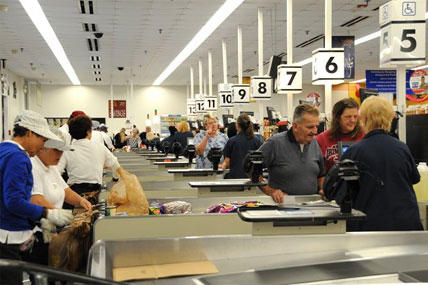About 900,000 veterans and 5,000 active duty troops face cuts in their food stamp benefits beginning Thursday as $5 billion is automatically trimmed from the Supplemental Nutrition Assistance Program (SNAP) program for low-income families.
"The coming benefit cut will reduce SNAP benefits, which are already modest, for all households by 7 percent on average, or about $10 per person per month," according to an analysis by the Center for Budget and Policy Priorities.
"Nationwide, in any given month, a total of 900,000 veterans nationwide lived in households that relied on SNAP to provide food for their families in 2011," according to an analysis of census data, the Center's report said.
The SNAP program received a boost under the 2009 Recovery Act, or stimulus bill aimed at lifting the nation out of recession, but that temporary increase will expire Thursday as Congress continues to debate a new farm bill which would separate farm subsidies from food stamp benefits.
In addition to the 900,000 veterans, the cut in SNAP benefits would impact about 5,000 military families that currently receive food stamps, mostly from the junior enlisted ranks, according to the Defense Department.
A Department of Agriculture report last year showed that more than 5,000 of the total of 48 million Americans receiving SNAP benefits listed their employment status as "active duty military," Pentagon officials said.
The SNAP program currently costs about $80 billion per year and provides food aid to 14 percent of all U.S. households, or about 48 million people.
Thousands of veterans from every state would be affected by the food stamp cuts, ranging from the 109,500 in Florida and 105,700 in Texas in the SNAP program, to the 2,200 in North Dakota, according to the Center for Budget and Policy Priorities.
Of the active duty troops, "military members who receive SNAP tend to be made up of members in junior pay grades with larger than average household sizes," Navy Lt. Cmdr. Nate Christensen, a Defense Department spokesman, said in August in commenting on the potential for benefit cuts
"Military members normally ‘promote out' of the need for additional subsistence benefits, due to the corresponding raises in basic pay and other allowances as one moves to a higher pay grade," Christensen said in an e-mail statement.
"It's a small population but it's a vulnerable population," Joye Raezer, executive director of the National Military Families Association, said of the active duty military families receiving food stamps.



























